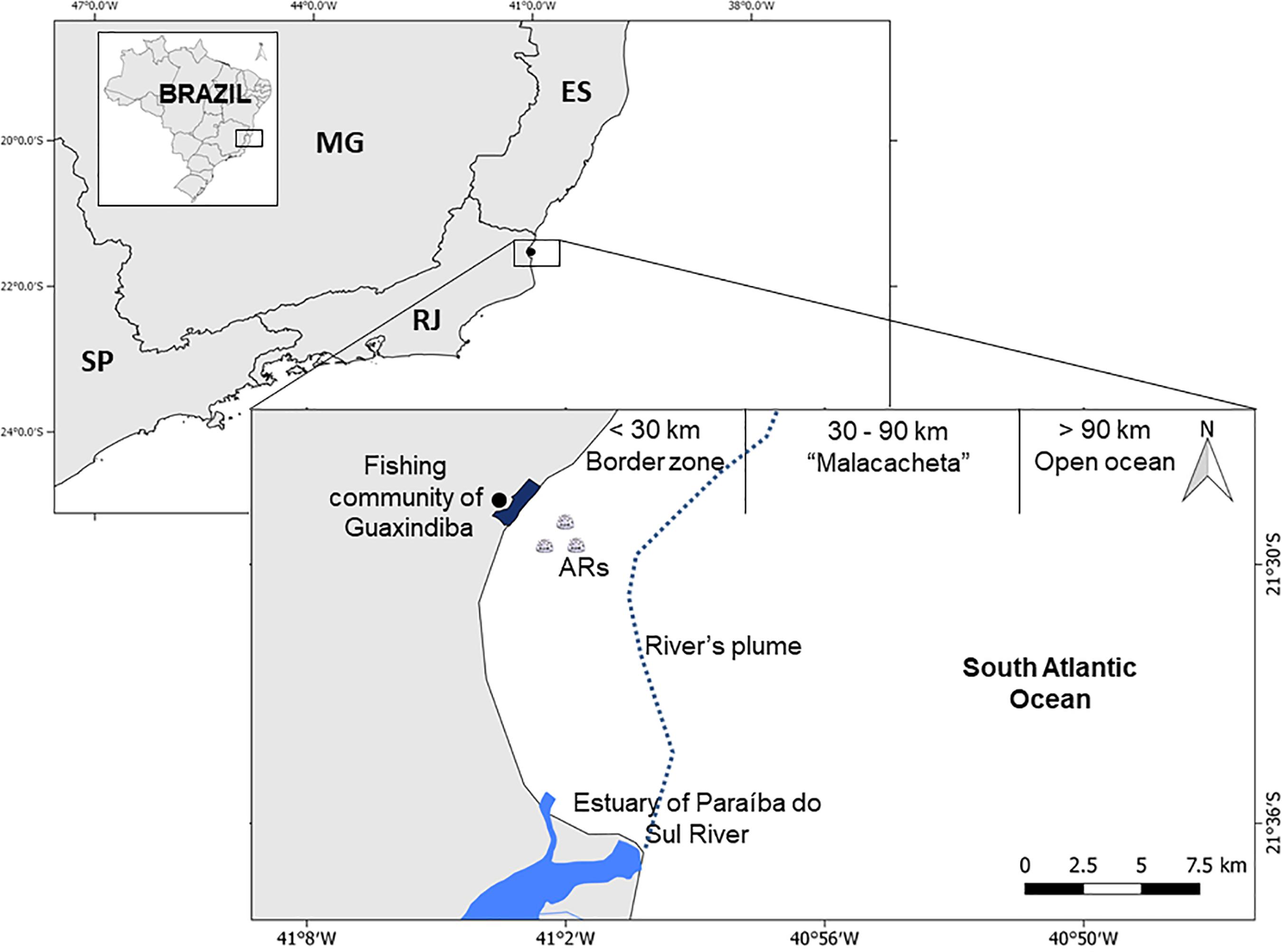Abstract:
The objective of this study is to describe the ethnoecological aspects, valorization, and commercialization of target species caught by artisanal fishers on the northern coast of Rio de Janeiro, southeastern Brazil. The data were obtained through semi-structured interviews conducted with 60 fishers from the fishing community of Guaxindiba (21°29'S, 41°00'W), which is associated with the Z-1 fishers' colony. Eighty-nine species were cited by the fishers and 44.1% are important commercial fish in the region. The fishers cited five distinct zones used to fish: border zone (68 species), estuary (41 spp.), artificial reef (27 spp.), "malacacheta" (24 spp.), and open ocean (10 spp.). The fishery resources were classified according to their gastronomic and economic characteristics: primary fish (35 spp.), secondary fish (32 spp.), mixed fish (10 spp.), discarded fish (7 spp.), and fish used as bait (5 spp.). The price of the target species increases along the production chain due to the greater number of people involved, processing costs, and improvement of the product. The data from this study can contribute to local fisheries management and point out to the use of artificial reefs in the maintenance of fishery resources in northern Rio de Janeiro.
Keywords:
artisanal fishing; traditional knowledge; fishery management

